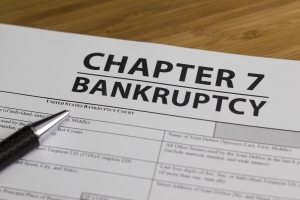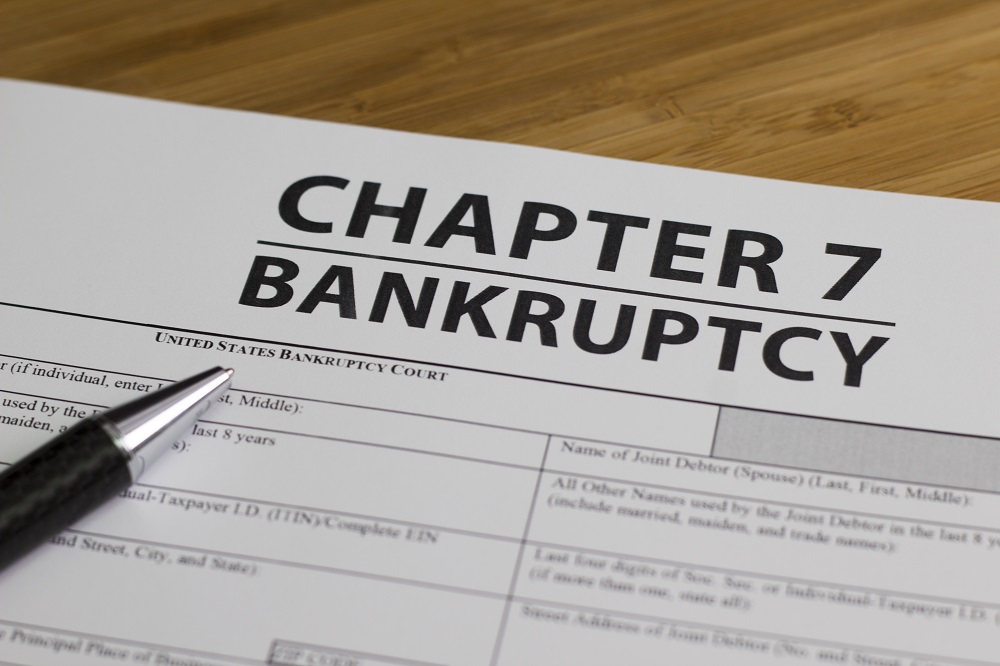Filing Bankruptcy in Arizona
 Bankruptcy is controlled by Federal law and contains some very complex rules and regulations. Filing correctly in the District of Arizona will ensure that your bankruptcy case has the best chance of going your way.
Bankruptcy is controlled by Federal law and contains some very complex rules and regulations. Filing correctly in the District of Arizona will ensure that your bankruptcy case has the best chance of going your way.
Before Filing
The 2005 Bankruptcy Abuse Prevention and Consumer Protection Act requires all consumers to undergo credit counseling before they file for bankruptcy from a government-approved organization within 6 months before filing. A consumer also is required to complete a financial management instruction course after filing bankruptcy.
A full list of Arizona approved credit counseling agencies can be found here. It is extremely important to receive an approved certificate from one of these institutions. If the certificate is not from an approved agency, the District of Arizona will not approve you to file.
Credit counseling classes will provide certain services. An evaluation of your personal financial situation will be examined. This will include income, debts, and creditors. Counselors will also discuss alternatives to bankruptcy, including debt consolidation loans, debt management plans, or debt settlement plans. All of these plans can be used as alternatives to bankruptcy. However, not every option is perfect for everyone’s situation. The counselor will assist in finding the right plan. Counselors will also provide advice on a personal budget plan. Budget plans are key since having trouble paying and keep track of income and expenses is crucial during this time period.
Before filing for bankruptcy, it is essential for a consumer to have their paperwork in order. Itemizing current income sources, citing major financial transaction for the past two to five years, monthly living expenses, all debts, and all property and assets. Tax returns should be collected for at least the past two years, any deeds to real estate, car titles or other vehicles, and documents for any loans.
Filing Bankruptcy
The government approved credit counseling agency will issue a certificate within 24 hours of completing the course. When filing for bankruptcy, the Court will require the certificate to be shown.
The 2005 Bankruptcy Act will analyze income and expenses to determine under which chapter an individual should file. These chapters for individuals include Chapter 7 and Chapter 13. The means test looks at the average income for the past 6 months prior to filing and compare it to the median income in Arizona. If the income is below the median income in Arizona, than Chapter 7 is the path to follow. If income exceeds the median in Arizona, a subsequent test will be applied to determine if Chapter 7 or Chapter 13 is appropriate.
For a four member household, the median annual income in Arizona is $64,604.00. For a two member household, the median annual income is $55,022.00.
There are test exemptions. If the debts are not primarily consumer debts, then the exemption applies to the means test. If the consumer is a disabled veteran and the debt was incurred primarily during activity duty, then the consumer is exempt.
Once the test determines which chapter to file, determining which property is exempt from seizure comes next. This means if the property falls under one of these exemptions, it is protected from seizure from the court and creditors.
Exemptions are extremely important. A list of Arizona exemptions can be found here.
There are also non-dischargeable debts, meaning that they cannot be discharged in either Chapter 7 or Chapter 13 bankruptcies. The consumer will be responsible for these debts. These can include child support, debts you forget to list on bankruptcy papers, alimony, and potential certain student loans.
After filing, the court will go through the procedure of sorting out debts and determining payback plans and which debts to discharge. It is important to get a broad idea of the bankruptcy proceeding before you file.
Click here for information on filing Chapter 7 bankruptcy in Arizona.





